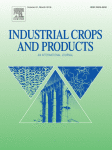Ver ítem
- xmlui.general.dspace_homeCentros e Institutos de InvestigaciónCICVyA. Centro de Investigación en Ciencias Veterinarias y AgronómicasInstituto de GenéticaArtículos científicosxmlui.ArtifactBrowser.ItemViewer.trail
- Inicio
- Centros e Institutos de Investigación
- CICVyA. Centro de Investigación en Ciencias Veterinarias y Agronómicas
- Instituto de Genética
- Artículos científicos
- Ver ítem
Effect of polyploidization in the production of essential oils in Lippia integrifolia
Resumen
Consumption of medicinal and aromatic plants is widespread and increasing worldwide. Yet, harvesting from the wild, the main source of raw material in developing countries, is causing loss of genetic diversity and habitat destruction. This situation makes imperative the development and application of breeding programs. Autopolyploidy has brought advantages for the improvement of agronomic traits of economically important plants. In this sense, obtaining
[ver mas...]
Consumption of medicinal and aromatic plants is widespread and increasing worldwide. Yet, harvesting from the wild, the main source of raw material in developing countries, is causing loss of genetic diversity and habitat destruction. This situation makes imperative the development and application of breeding programs. Autopolyploidy has brought advantages for the improvement of agronomic traits of economically important plants. In this sense, obtaining polyploid individuals is an interesting strategy to achieve this objective. In the present study successful induction of polyploidy in Lippia integrifolia (“incayuyo”) was achieved by applying colchicine in the multiplication medium MS + 2.2 μM BAP. Induced autotetraploids showed significant differences from the field mother plant (size of the leaves, inflorescences, trichomes, stomatas, and pollen grains). In addition, essential oil yields were enhanced in tetraploids, and surprisingly, quantitative differences were detected in the composition of all recovered individuals from in vitro culture (tetraploids and diploids) with respect to the mother field plant. Due to the phenotypic differences, and enhanced essential oil yields and composition, tetraploid individuals became a new variety of incayuyo.
[Cerrar]

Autor
Iannicelli, Jesica;
Elechosa, Miguel Angel;
Juarez, Miguel Angel;
Martinez, Alejandro;
Bugallo, Veronica Lucia;
Bandoni, Arnaldo Luis;
Escandon, Alejandro Salvio;
van Baren, Catalina María;
Fuente
Industrial crops and products 81 : 20-29. (March 2016)
Fecha
2016-03
ISSN
0926-6690
Formato
pdf
Tipo de documento
artículo
Palabras Claves
Derechos de acceso
Restringido
 Excepto donde se diga explicitamente, este item se publica bajo la siguiente descripción: Creative Commons Attribution-NonCommercial-ShareAlike 2.5 Unported (CC BY-NC-SA 2.5)
Excepto donde se diga explicitamente, este item se publica bajo la siguiente descripción: Creative Commons Attribution-NonCommercial-ShareAlike 2.5 Unported (CC BY-NC-SA 2.5)

